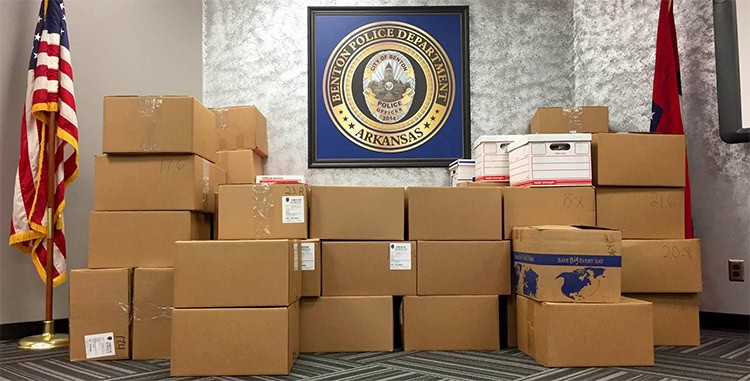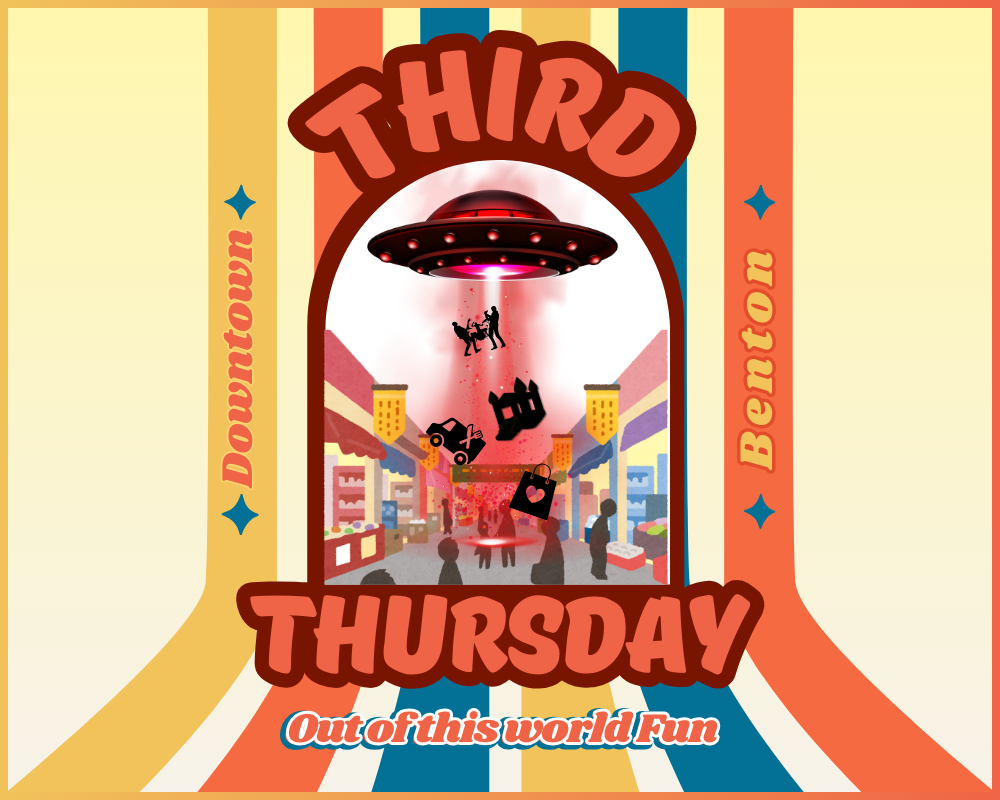
Saline County law enforcement collected over 1,500 pounds of drugs on Saturday, April 29th. It wasn’t a drug bust, but rather an event to collect expired and unused prescription drugs. Similar to a bust though, it keeps drugs from ending up on the street, and also out of our landfills and wastewater. The Benton Police Department (BNPD) calls their event Operation Medicine Cabinet (OMC). This event has grown from just Benton, to having a statewide program called Arkansas Drug Take Back, and then to becoming a nationwide effort. More on that in a minute. This year as usual, BNPD’s OMC took in the bulk of Saline County’s Rx haul while participating in the statewide event. Other smaller agencies did their part to help.
- Benton Police Department – 1,067 pounds
- Bryant Police Department – 300 pounds
- Haskell Police Department – 51 pounds
- Saline County Sheriff’s Office – 85.2 pounds
Since 2009, the start of OMC, more than 5 tons of prescription medications have been donated to the BNPD for environmentally safe disposal.
“This shows that residents here are passionate in reversing the opioid epidemic in our own communities and across the nation,” Benton Police Chief Kirk Lane said. “Statistics show that prescription drug abusers largely get them from home medicine cabinets. We are also very proud to see many parents bringing their children with them to show the importance of Operation Medicine Cabinet and the Arkansas Drug Take Back Day.”
According to the BNPD, a large portion of people who abuse prescription opioids report that they obtained them in the homes of loved ones, including 42% of teenagers obtaining prescription medicines from their parents’ medicine cabinet. Also, 64% of teenagers that have abused prescription pain relievers say they got them from friends or relatives. About 2/3 of all illegally obtained prescription drugs (including stimulants like Adderall and depressants like Ativan) are taken from people’s homes and not pharmacies or off the street.
The April 29 Arkansas Drug Take Back Day and Operation Medicine Cabinet were both dedicated to the late William Christian Doerhoff and The William Christian Doerhoff Memorial Foundation. Read more about Will Doerhoff and his parents’ dedication to a program called “Speak Up-Speak Out” at www.willswork.org.
OMC started in Benton after Russell Goodwin, owner of a local monument company and youth baseball coach, told Chief Lane that he was tired of making headstones for children he knew, due to the abuse of prescription drugs. Benton officers gathered data that showed there was a problem with abuse and misuse of prescription drugs by youth, including information from the Saline County Coroner’s Office which showed that 30 people died in 2009 as a result of prescription drug abuse.
The first OMC in Benton in the spring of 2009 gathered just 146 pounds of prescription medications, but the program and education to the public continued growth. State officials took notice and the program expanded. In 2010, a coalition led by State Drug Director Fran Flener, then Arkansas Attorney General Dustin McDaniel and both Arkansas districts of the U.S. Attorney’s Office launched an ongoing educational program to encourage everyone to “Monitor, Secure and Dispose” of their prescription medications. The also launched the website www.artakeback.org.
On the heels of the success in Arkansas, the U.S. Drug Enforcement Administration announced a nationwide prescription drug take back campaign. In May 2016, the DEA announced that 893,498 pounds of prescription medications were collected in all 50 states, with 25,289 pounds collected from Arkansas.
Returning your unwanted medicines to Operation Medicine Cabinet is the safest and most environmentally protective way to dispose of unused medication. Medicines that are flushed or poured down the drain can end up polluting our waters, impacting aquatic species, and contaminating our food and water supplies. Most medicines are not removed by wastewater treatment plants or septic systems. Scientists have found medicines in surface, ground and marine waters as well as soils and sediments in the Pacific Northwest. Even at very low levels, medicines in the environment hurt aquatic life.
Medicines are a special type of hazardous chemical which are not safe in solid waste systems and landfills. Drugs can be very toxic for people and wildlife, even in low doses. Just as we do not put used motor oil or leftover paint thinner in the trash, we should not put these extremely potent pharmaceutical chemicals into unsecure curbside trash cans.
If you need to dispose of prescription medications, drop them off in the BNPD’s 24/7 drop box, located at 114 S. East St.
For more information about Operation Medicine Cabinet and for a list of locations across the state where medicines can be dropped off, visit www.artakeback.org or call (501) 618-8693.




